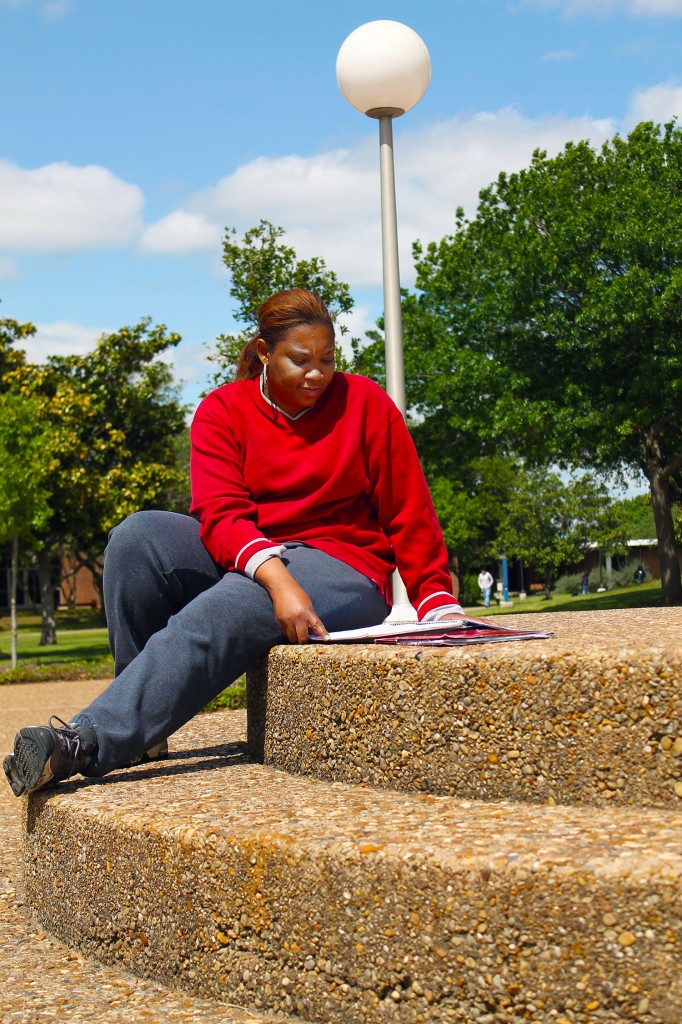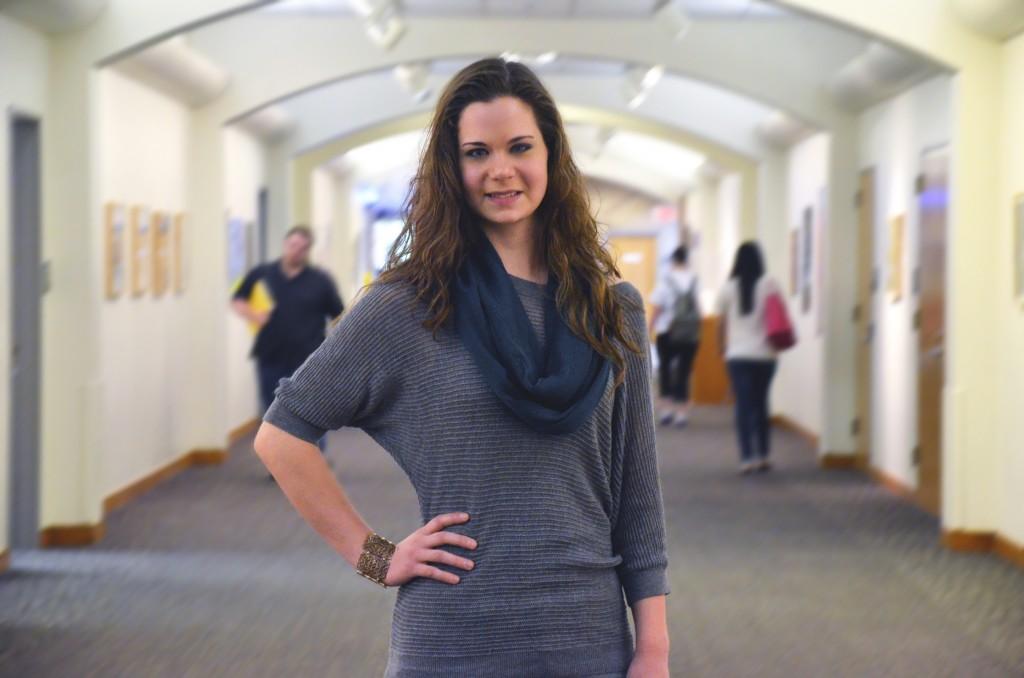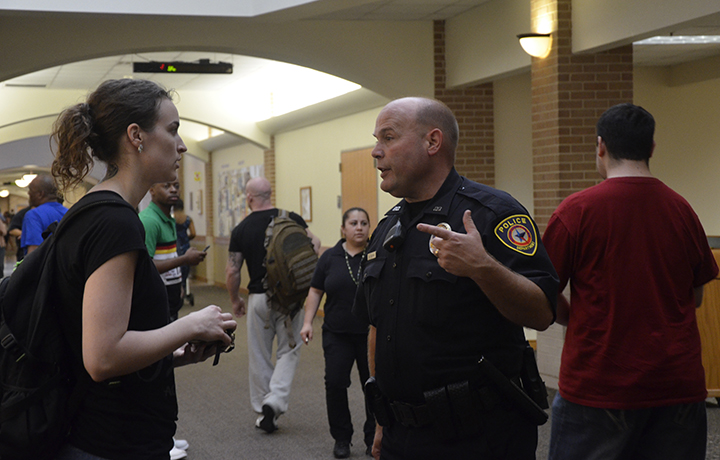
By Chan Mon/reporter
Ar Liya was told Tarrant County College is the best place for immigrant students who speak English as a second language to go first before transitioning to a four-year school.
Charlotte Edmond, a medical assistant, said TCC has very helpful service and was the best place to start a professional field for a higher career.
Caron Byington, a mother who raised two children by herself, said TCC’s distance learning education program made her successful.
Tens of thousands of students are using TCC to transition to a four-year university, for a career field and for certification. For more than 45 years, the college has given students the tools for a fulfilling career benefiting new settlers from other states and countries around the world.
Liya is one of those new settlers. Originally from Burma, he is a junior at South Hills High School in Fort Worth and is preparing his essay to enroll at TCC. Liya doesn’t know what TCC is like and has never visited.
His teacher told him TCC is the best for him and other students who need to improve English skills. His teacher is pushing him to write essays regularly to improve in the language.
Most of his teachers attended TCC and later transferred to the University of Texas at Arlington or the University of North Texas. His teachers regularly tell students TCC is a great place for a transition.
“They told me TCC is cheap and a great place to improve basic skills,” Liya, 16, said in Burmese. “It will be a good place for my mechanic career.”
Liya’s English is very limited. He understands what teachers are saying to him, but he has a hard time answering them.
He reached the United States four years ago from Burma. The oldest son in his family, he has two younger brothers and a sister in grade school. He is trying to be the first family member to go to college.
His father told him he must graduate with mechanical or medical training. He believes TCC would help him advance, so he continues practicing his essays every day. His teacher told him to write essays about his life and his family’s struggles to survive in the United States.
Liya’s family escaped to Thailand 12 years ago and took shelter in Mae La refugee camp. The U.S. government granted the family resettlement in Fort Worth four years ago.
Thousands of refugees from Africa, the Middle East and Asia have resettled in the DFW area in the past 10 years with the help of Catholic Charities, World Relief and Refugees Service of Texas. Like Liya, hundreds of Bhutanese, Iraqi, Somali and other refugees will have access to TCC for a better education and career.
TCC diversity has grown over the years. When TCC started operation in 1967, students were made up primarily of only three major races: white, African-American and Hispanic.
“Northeast Tarrant County was very, very white,” said Larry Davis, a government associate professor who has worked on NE Campus since it started in 1967. “The last 15 years, Tarrant County has more diversity, and the largest diversity group is Hispanic.”
Tarrant County started having people from the Middle East in the late 1980s and Southeast Asia in the late 1970s. Many Iranian, Vietnamese, Laotian and Cambodians came as well and needed to transition from the depression and frustration of civil war in their countries. The transition was in language and social cultures, as with Liya.
Another reason for TCC’s diversity is people from other states moving to the county, said Tom Kellam, TCC archivist.
“The numbers of population are slightly increasing, and TCC also is expanding its programs,” Kellam said.
Except white and African-American, more than 7,000 students of other ethnicities took classes at TCC in 2012. Some hundreds of international students attend. Seven major ethnic nationalities are found at TCC.
Another plan to bring more diversity is an exchange program TCC is working on with similar schools in China and Japan attracting an international community, making it a global school.
“We have not done a lot of advertising and marketing to bring international students to our campuses,” NE Campus president Larry Darlage said. “However, we think that will change in the next few years. I think we will put a lot more emphasis on international studies.”
Darlage said it is important for all students to be exposed to global issues and not think just of the United States but to think globally when they graduate. It will make students understand about the jobs around the world.
For Edmond, TCC’s teaching quality affected her. TCC’s overall rating on the website Rate My Professor is higher than Texas Christian University’s and other colleges in Texas, she said.
“It is the cheapest school, and I went online, and I like Rate My Professor,” she said about her decision. “I love the writing lab, all the labs and the library.”
She paid the institution, where she got a certification as a medical assistant, much more than she pays TCC.
Edmond has five children and is a single mother from Wichita Falls. She worked as a medical assistant for many years, but now she is starting her dream for a career in the professional medical field.
“I am not like other students taking class here for transfer,” she said. “I will take an associate degree here.”
Edmond thinks an associate degree will increase her income and help her career chances.
Edmond is a student over the age of 40, and about 10 percent of TCC’s students fall in that same age bracket.
About 62 percent of students are under 25, and the majority of students are part-time students. TCC has flexible schedules, and having five campuses makes it easier for students.
TCC’s online classes and distance education programs also support students who can’t come to school to take classes.
Byington, who could not take classes on campus, said she took about 120 credit hours online because of her full-time work and children. But she was successful and is now working at the disability support services center on South Campus.
“The distance learning that I did here made me successful in other schools,” she said. “This is the best distance education program that I ever have experienced.”
Byington said students who take distance learning classes from TCC will have no problem taking similar classes when they transfer to other schools. Based on what she learned at TCC, Byington developed her learning skills and was successful at Texas A&M-Commerce.
Byington said many professors from four-year universities and colleges teach at TCC. Students are paying TCC prices for a four-year-university education. It is the same education for less.























